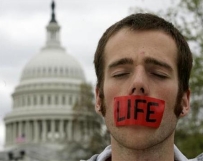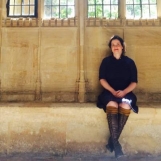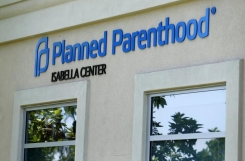American states that have stringent abortion restrictions have fewer abortion cases than those in states that have less of those restrictions, according to a new study by Guttmacher Institute, an organisation founded by the much maligned Planned Parenthood.
The recently published study was based on data gathered in 2010 from the Pew Research Center's 2007 Religious Landscape Survey, according to LifeSiteNews.
Based on the study, the most pro-life states are Mississippi, Utah, Kentucky, West Virginia, Arkansas, North Dakota, Louisiana, South Dakota, Tennessee and Alabama,.
The most pro-abortion states include Maine, Massachusetts, Vermont, Connecticut, New Hampshire, New York, Maryland, California, Rhode Island, and New Jersey.
The institute's study is about unintended pregnancies in the US and compared the data on these to abortion rates.
It showed that the percentage of unintended pregnancies is the same in both groups of states.
Among the pro-life states, 51 percent of pregnancies were unintended, while those in the pro-abortion states were at 50 percent.
"Although a majority of abortions result from unintended conceptions, some women do obtain abortions following a conception that was intended," the study said.
In New York, 54 percent of unintended pregnancies were aborted while in South Dakota, the figure was 11 percent. Utah, the second most pro-life state, had the fewest unintended pregnancies.
"The abortion ratio—that is, the number of abortions per 100 unintended pregnancies ending in a birth or an abortion—ranged from 13 percent in South Dakota to 61 percent in New York. Fifteen states had an abortion ratio of at least 40 percent; the median abortion ratio was 32 percent," the study noted.
According to the Washington Post, the institute's numbers are expected as "more abortion-rights opponents tend to mean fewer abortions."
"Women in many of the more anti-abortion states often have less access to abortion (i.e. fewer clinics nearby) and might have to clear more regulatory hurdles, such as having an ultrasound before the procedure," the newspaper said.
It added, "In fact, some of the states that oppose abortion the most also have some of the highest rates of unintended pregnancies—particularly in the South. And on average, the states that favour abortion rights the most have slightly lower levels of unintended pregnancies."




















